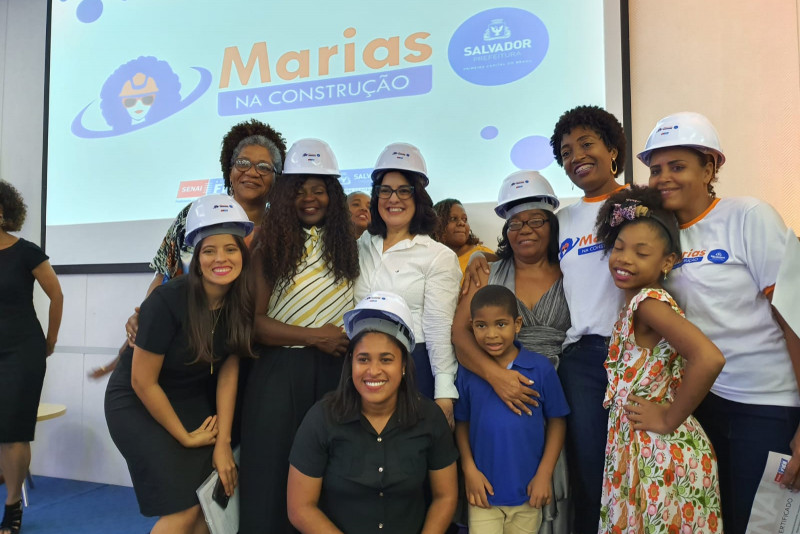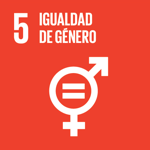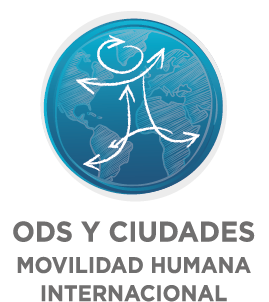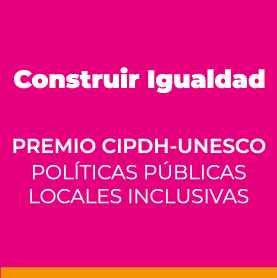
- Region
- Latin America and the Caribbean
- Range of Demographic Size
- 1,000,000 inhabitants or more (metropolis)

5.1 End all forms of discrimination against all women and girls everywhere in the world.
5.2 Eliminate all forms of violence against all women and girls in the public and private spheres, including trafficking and sexual and other types of exploitation.
5.3 Eliminate all harmful practices, such as child, early and forced marriage and female genital mutilation.
5.4 Recognize and value unpaid care and domestic work through the provision of public services, infrastructure and social protection policies and the promotion of shared responsibility within the household and the family as nationally appropriate.
5.5 Ensure women’s full and effective participation and equal opportunities for leadership at all levels of decision-making in political, economic and public life.
5.6 Ensure universal access to sexual and reproductive health and reproductive rights as agreed in accordance with the Programme of Action of the International Conference on Population and Development and the Beijing Platform for Action and the outcome documents of their review conferences.
5.a Undertake reforms to give women equal rights to economic resources, as well as access to ownership and control over land and other forms of property, financial services, inheritance and natural resources, in accordance with national laws.
5.b Enhance the use of enabling technology, in particular information and communications technology, to promote the empowerment of women.
5.c Adopt and strengthen sound policies and enforceable legislation for the promotion of gender equality and the empowerment of all women and girls at all levels.
• Inter-American Convention on the Elimination of all Forms of Discrimination Against Persons with Disabilities
• Inter-American Convention on the Prevention, Punishment, and Eradication of Violence against Women (Convention of Belém do Pará)
Declaration on the Elimination of Violence Against Women.
Convention on the Elimination of all Forms of Discrimination Against Women (CEDAW).
Universal Declaration of Human Rights (UDHR).
Summary
“Marias na Construção” (“Marias in Construction” ) is a pilot project of the Secretariat of Policies for Women, Childhood and Youth (SPMJ) adopted in collaboration with the National Service of Industrial Learning of Bahia (SENAI). This project aims at promoting self-improvement, qualification, and professional integration through free and open courses on civil construction, exclusively targeting women.
The name pays homage to the first female master builder in Bahia, Maria do Amparo Xavier, and seeks to foster equality in the sector, in line with the Sustainable Development Goal 5.
Implementation Date:
Start: 07 / 15 / 2019
End: End: Currently in force
- Email: ascom.spmj@salvador.ba.gov.br
- Web: http://spmj.salvador.ba.gov.br/
- Telephone: +55 71 3202-7300
- Social Network:
Instrumentos

5.1 End all forms of discrimination against all women and girls everywhere in the world.
5.2 Eliminate all forms of violence against all women and girls in the public and private spheres, including trafficking and sexual and other types of exploitation.
5.3 Eliminate all harmful practices, such as child, early and forced marriage and female genital mutilation.
5.4 Recognize and value unpaid care and domestic work through the provision of public services, infrastructure and social protection policies and the promotion of shared responsibility within the household and the family as nationally appropriate.
5.5 Ensure women’s full and effective participation and equal opportunities for leadership at all levels of decision-making in political, economic and public life.
5.6 Ensure universal access to sexual and reproductive health and reproductive rights as agreed in accordance with the Programme of Action of the International Conference on Population and Development and the Beijing Platform for Action and the outcome documents of their review conferences.
5.a Undertake reforms to give women equal rights to economic resources, as well as access to ownership and control over land and other forms of property, financial services, inheritance and natural resources, in accordance with national laws.
5.b Enhance the use of enabling technology, in particular information and communications technology, to promote the empowerment of women.
5.c Adopt and strengthen sound policies and enforceable legislation for the promotion of gender equality and the empowerment of all women and girls at all levels.
• Inter-American Convention on the Elimination of all Forms of Discrimination Against Persons with Disabilities
• Inter-American Convention on the Prevention, Punishment, and Eradication of Violence against Women (Convention of Belém do Pará)
Declaration on the Elimination of Violence Against Women.
Convention on the Elimination of all Forms of Discrimination Against Women (CEDAW).
Universal Declaration of Human Rights (UDHR).
Location
- Region
- Latin America and the Caribbean
- Range of Demographic Size
- 1,000,000 inhabitants or more (metropolis)
Contact details
- Email: ascom.spmj@salvador.ba.gov.br
- Web: http://spmj.salvador.ba.gov.br/
- Telephone: +55 71 3202-7300
- Social network:



